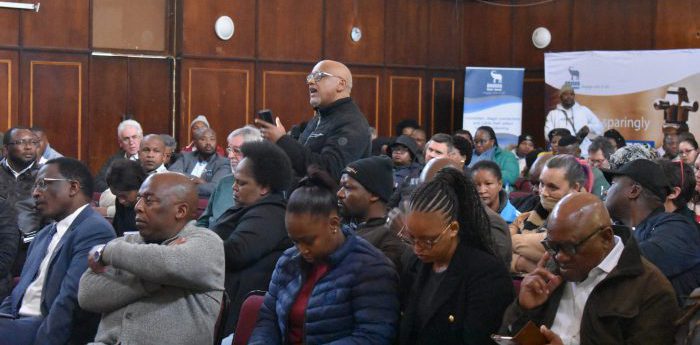By Thapelo Matlala, Benny Mojela, Anna Majavu and Ruvesen Naidoo
About 200 angry and frustrated Makhanda and Alicedale residents packed the Makhanda City Hall on 16 August to let the Water and Sanitation Minister, Senzo Mchunu, know all about the devastating effects of water mismanagement in Makana Municipality.
Mchunu, dressed in worker’s overalls, arrived at the meeting directly after a site visit to the James Kleynhans Water Treatment Works, and told the audience that the government’s duty was to make sure that water was well managed and used properly.
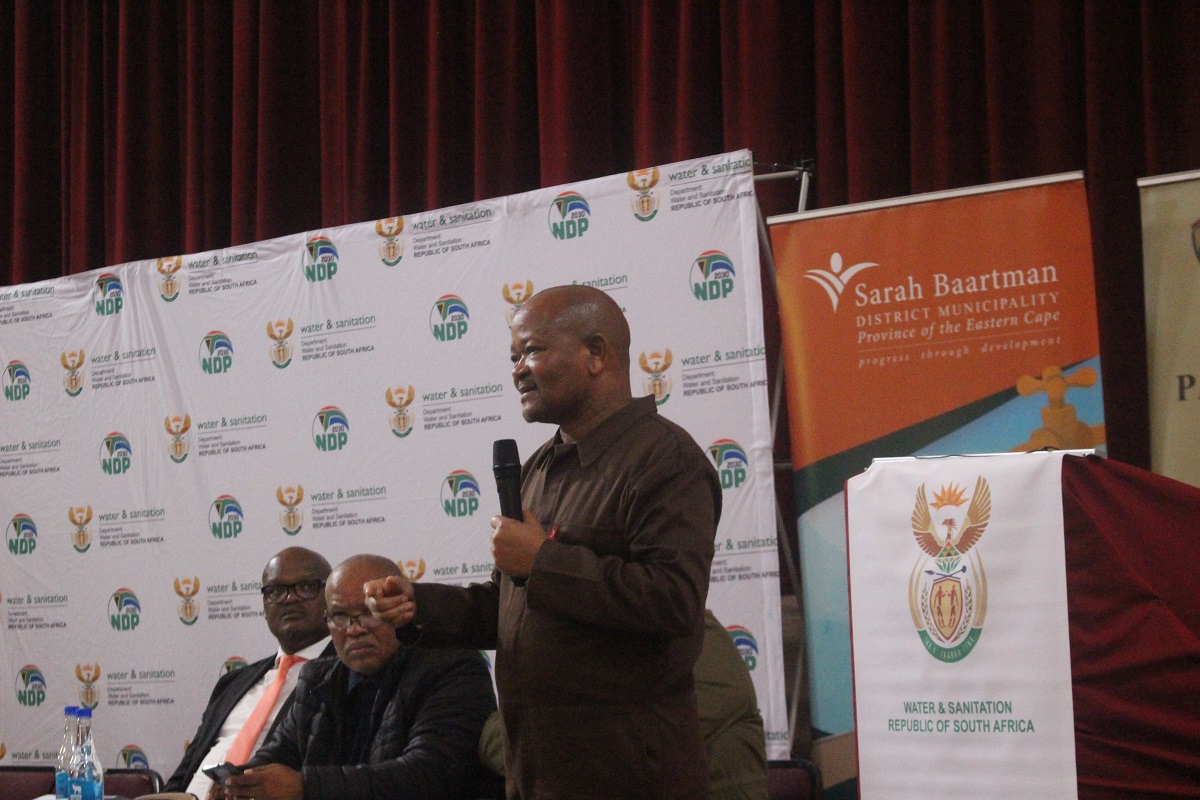
But Tim Bull of the Makana Residents’ Association (MRA) said even though the drought had ended in 2020, many households were still going without water for long periods of time. Having only one pump operating at Howieson’s Poort dam was “a crisis waiting to happen”, said Bull adding that four pumps were needed at the James Kleynhans Water Treatment Works and three at Howieson’s in order to meet the town’s daily water needs.
Bull said that while the current municipal manager, Phumelelo Kate, was doing his best, the previous administration had wasted a lot of money and a “bullying culture” had demoralised those staff members who had the capacity to help fix the water problems.
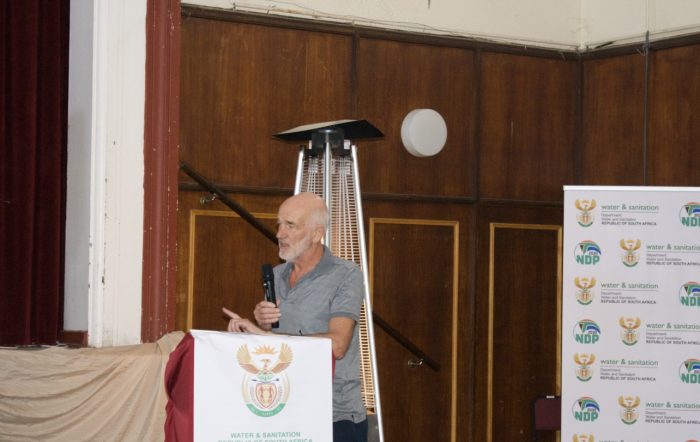
Rhodes University (RU) Vice-Chancellor Sizwe Mabizela said he was pleading with Mchunu to fix the water problems in Makhanda. “Ensuring reliability of water supply is critical for RU. When we have water shortages, life for our students and staff becomes insufferable and completely unbearable”.
Mabizela said parents had told him they were reluctant to send their children to Rhodes because there was no water. He added that students were suffering the indignity of blocked toilets and staff the indignity of having to clean those toilets.
Resident Felicity Langford said her front yard was filled with sewage. She had just buried her husband and mourners could not enter the yard because the sewage leak meant they could not walk across the grass. Langford said she had no water in her taps for three years.
Ali Adam, the provincial chairperson of the National African Federated Chamber of Commerce and Industry (NAFCOC) said local businesses were extremely frustrated over water outages and the poor state of the roads, which caused them to lose revenue. “I am very embarrassed about what is happening in our town. You come all the way here to listen to grievances but on the other hand, the government is represented in this town” he said, calling for “correct personnel” to be hired in the municipality, and describing some of the town’s roads as roads one would see “in a war zone”.
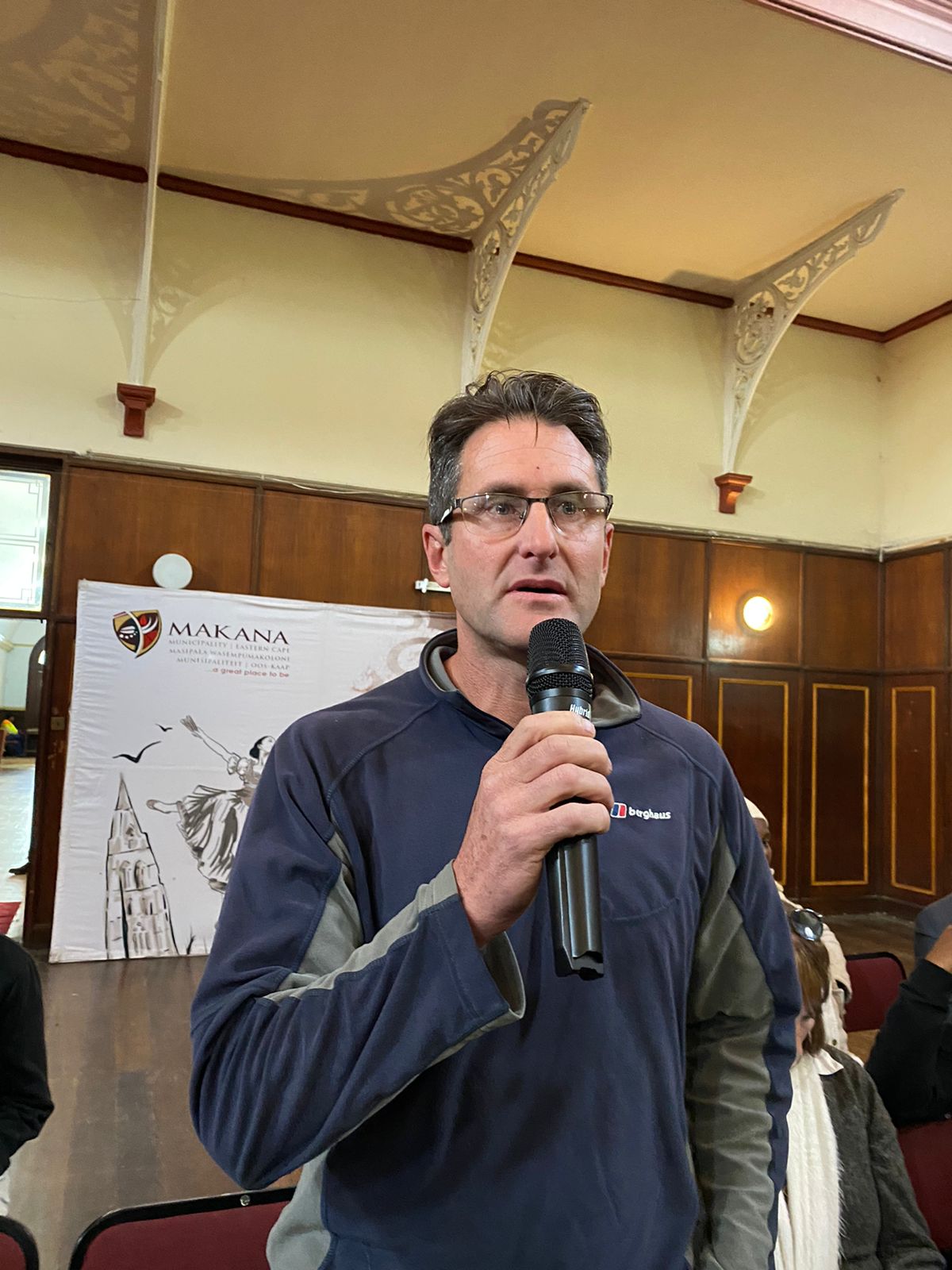
Geoff Embling, Ward Four councillor of the DA, said of the now 20 megalitres being delivered to the town daily, 40% was going to waste. This meant that the town, which needs 18 megalitres per day, was only getting 12 megalitres – not enough to meet its daily needs even though the output from the water treatment works had increased.
MRA interim chairperson Philip Machanick told Mchunu that the community was “now losing trust in the government”.”Major leaks take several tries to fix. We can’t keep going like this with broken promises and water outages”, he said.
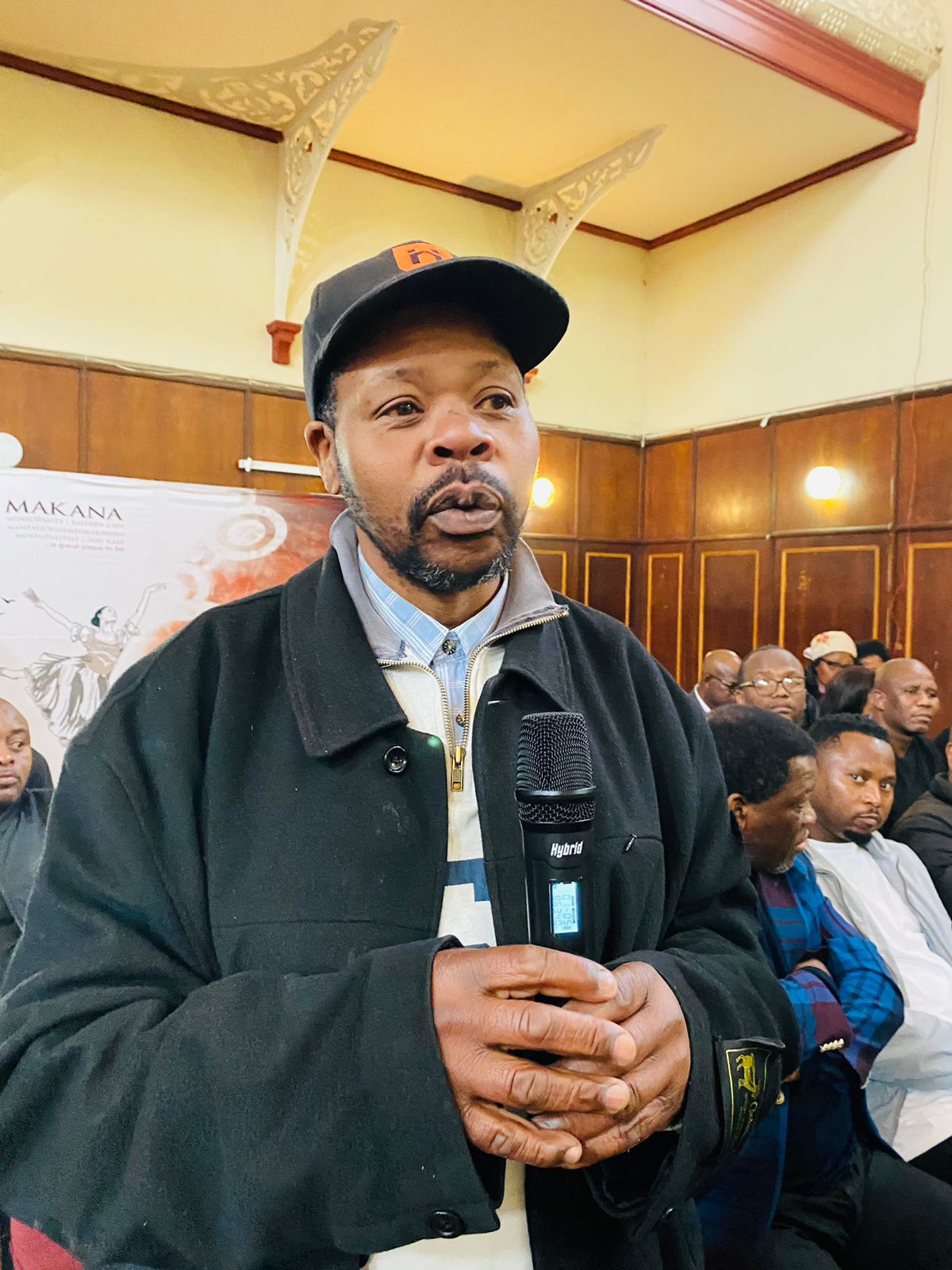
Residents also said government officials did not care for ordinary residents, such as the people of Sunnyside who see thousands of litres of treated water leaking out into the streets every day, even while their taps run dry.
Shaun Brandon, a concerned citizen of Makhanda, said “We have been abused by this municipality. The only people smiling at this meeting are government officials. We are tired of listening to stories. We want to see pipes and pumps being fixed”. He also questioned how Makana Municipality was able to deliver a regular water supply for 10 days during the National Arts Festival yet was unable to keep supplying water every day as soon as the festival ended.
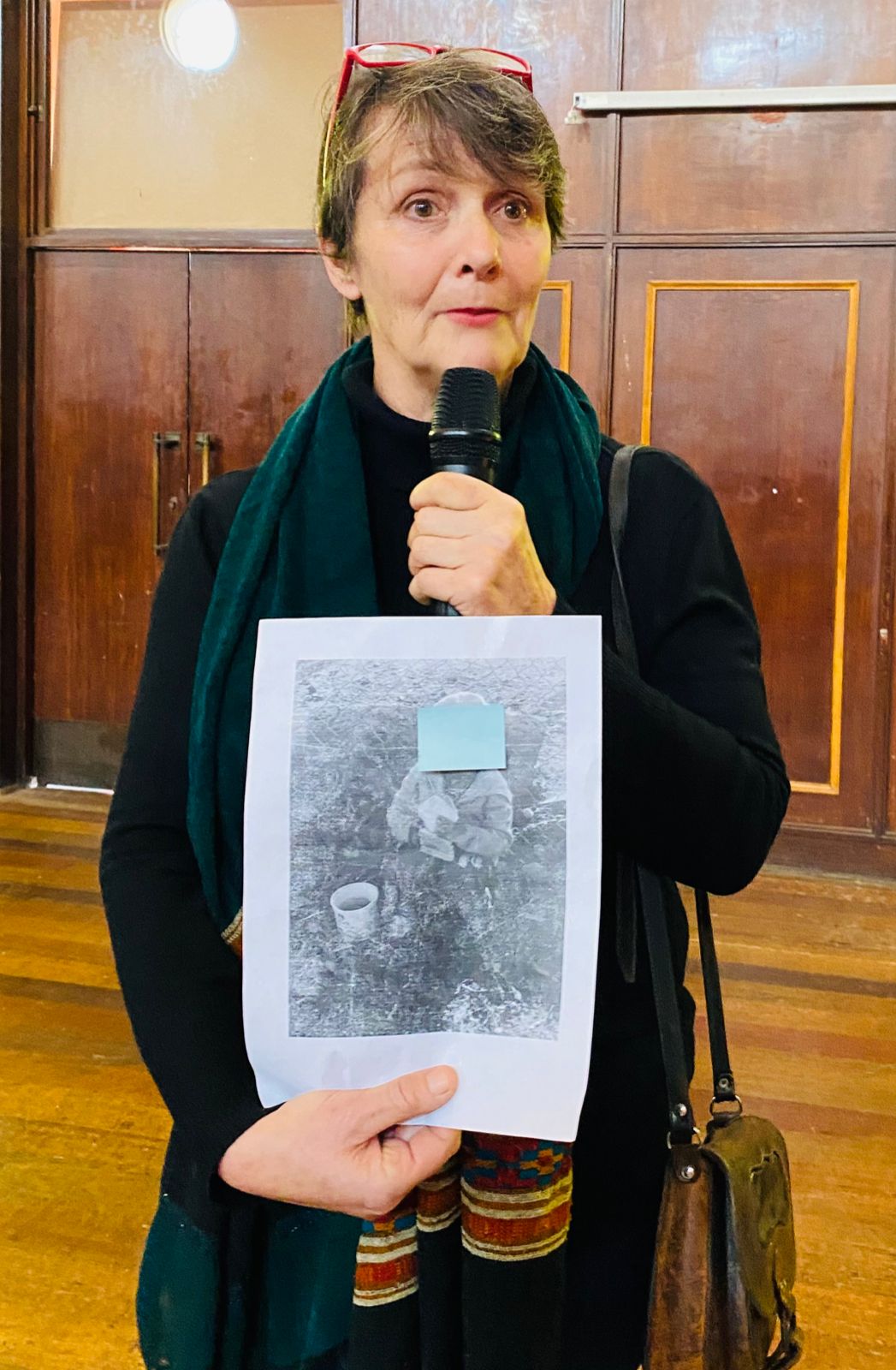
San Knoetze, an Education lecturer at Rhodes University, said that during her volunteering work at community kitchens in the informal settlement of Sun City, she was unable to find a cup of water for a thirsty child because all the taps were dry. Sun City resident Nico Phyllis said he had been struggling for over one month to take his chronic medication without water.

Theo Fulani, a Ward Committee member from Ward 11, said sewage was leaking around a high school in his ward, also affecting the adjacent pre-school. “You can imagine the health hazard”, he told Mchunu, adding that the schools frequently had to close early. He asked what the minister was doing to repair Makhanda’s aging underground water pipes.
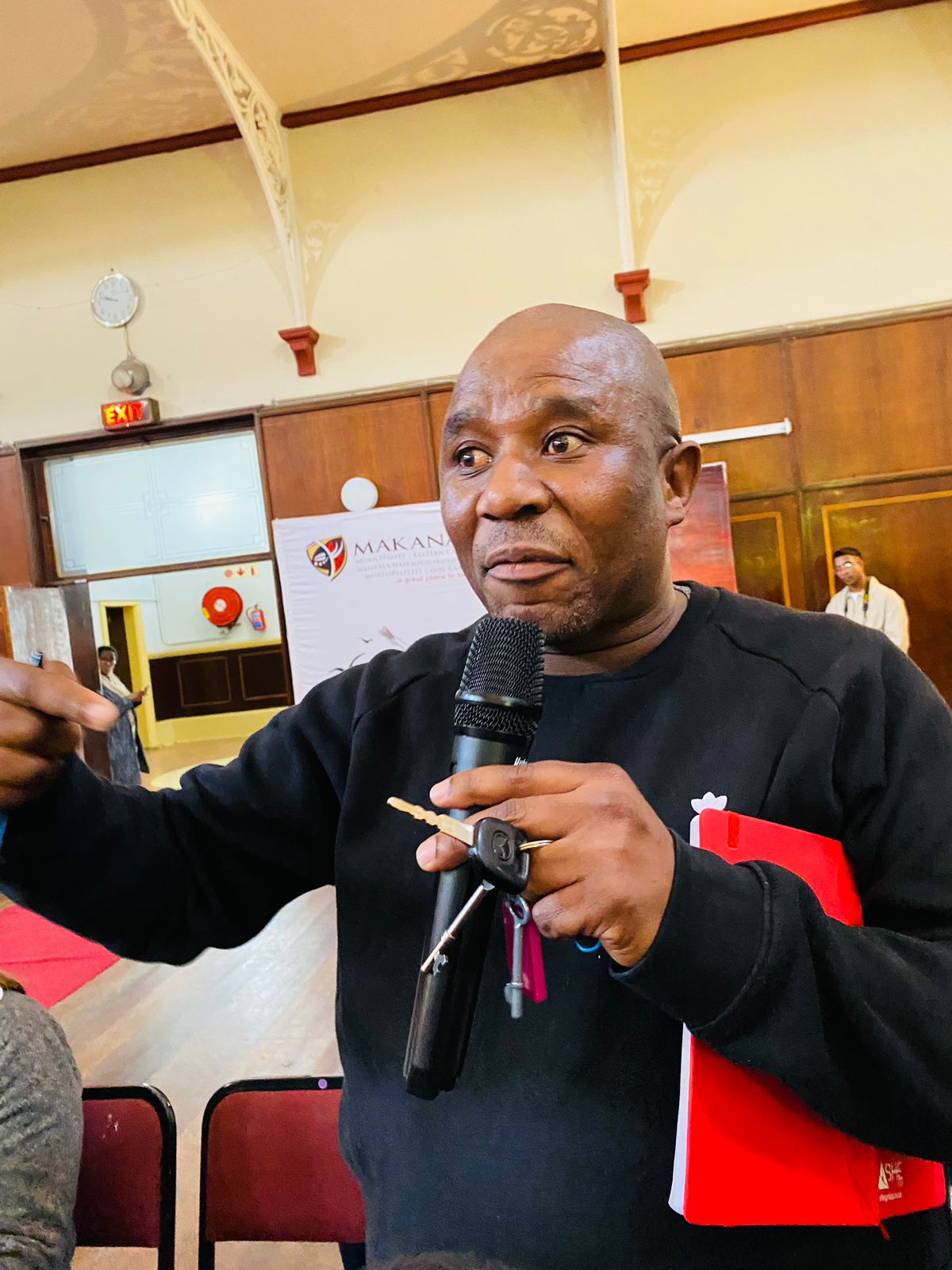
Thabo Siziba, Occupational Health and Safety officer at the South African Institute for Aquatic Biodiversity (SAIAB) said insurance was reluctant to cover SAIAB because there was no water to put out a fire if the 70000 litres of flammable liquid needed for SAIAB’s scientific work caught fire. “It’s a crisis. Should we look elsewhere to run our business?” Siziba asked, explaining that SAIAB could not be compliant with major hazard installation regulations because there was no water.

An Alicedale resident, John Bateson, said Alicedale residents have water only two days a week. The town is reliant on three boreholes, which are drying up. When Bateson asked Mchunu what it would take to get a state of disaster declared in Alicedale, Mchunu sidestepped the question, saying that President Cyril Ramaphosa had acknowledged that there was an “undeclared state of disaster in water. We are working on the basis of an internally declared state of disaster”, Mchunu said.

“We see our beautiful town is damaged. Each and every location has a leakage. Is that good? No!” said Ward Two committee member, Zibangele Mcuba, demanding that the government ensure that Makana was well taken care of.
Eastern Cape MEC of Co-operative Governance and Traditional Affairs, Zolile Williams, said his department was aware of the problems in Makhanda. “We may have to introduce a war on water leaks because we can see everywhere in Grahamstown is water, and sewage”, Williams said.
He explained that previously, there were no water problems or potholes in the town. “If you go 15 years back, this city did not have problems of potholes as it is now a pothole city. And as officials of government at the time, you would not know that we came to learn from this city about their performance management systems, about how they were doing things, and so on,” Williams said.
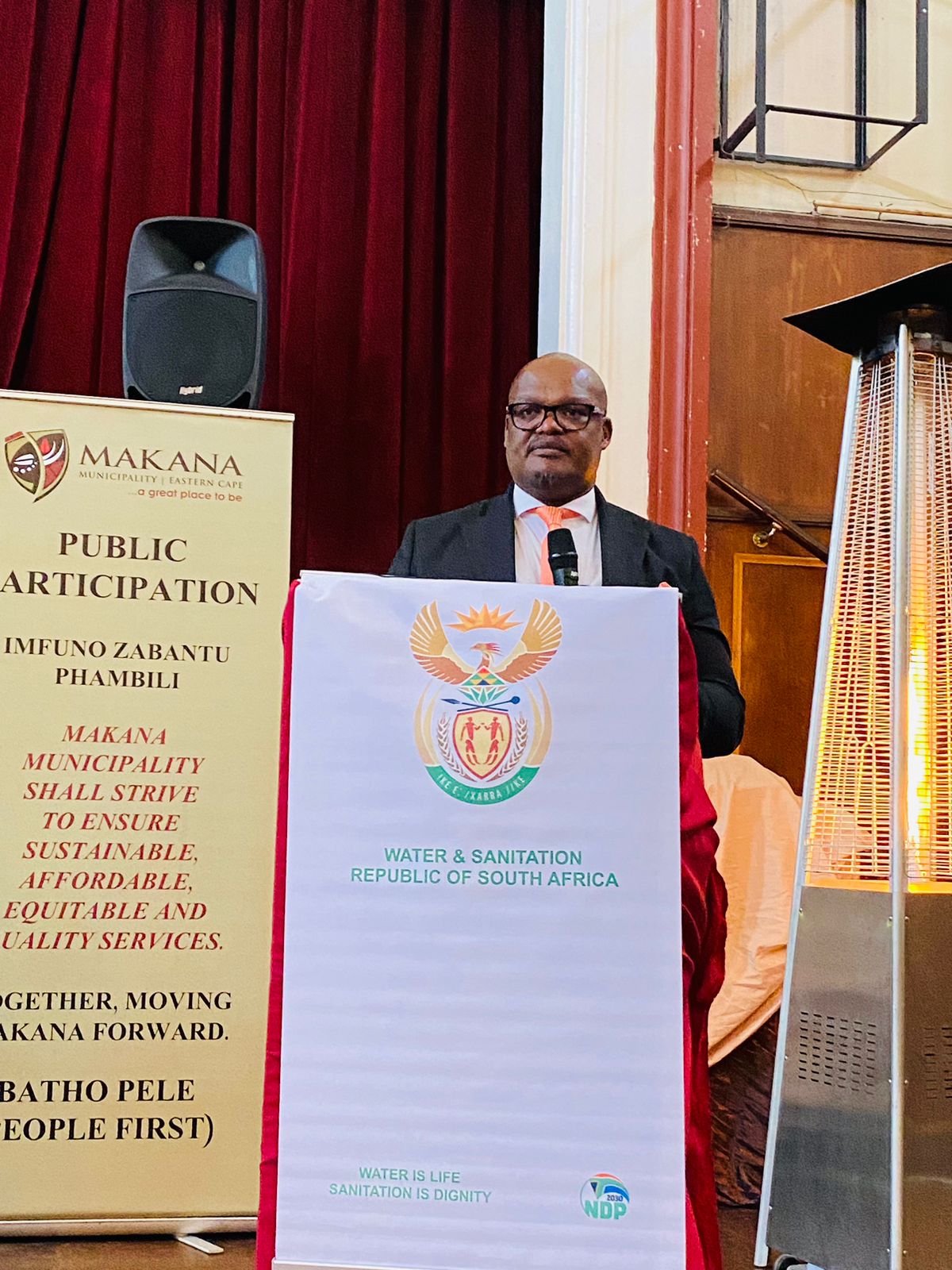
Residents were unimpressed when Mchunu spoke at length about water projects that the government was carrying out in Limpopo and Mpumalanga or when Mchunu said he could not understand why people said they did not trust him even when they had never met him before.
However, the mood lifted somewhat when Mchunu promised to be back within one month to report back on progress. “We note your demands. I’m going to make undertakings and deliver. You may have had experiences of people making promises. We are not into that,” Mchunu said.
“We will be dealing with each and every issue with a decision, with timeframes, with funding, and that includes spillages of water and sewage throughout this place,” he added.


